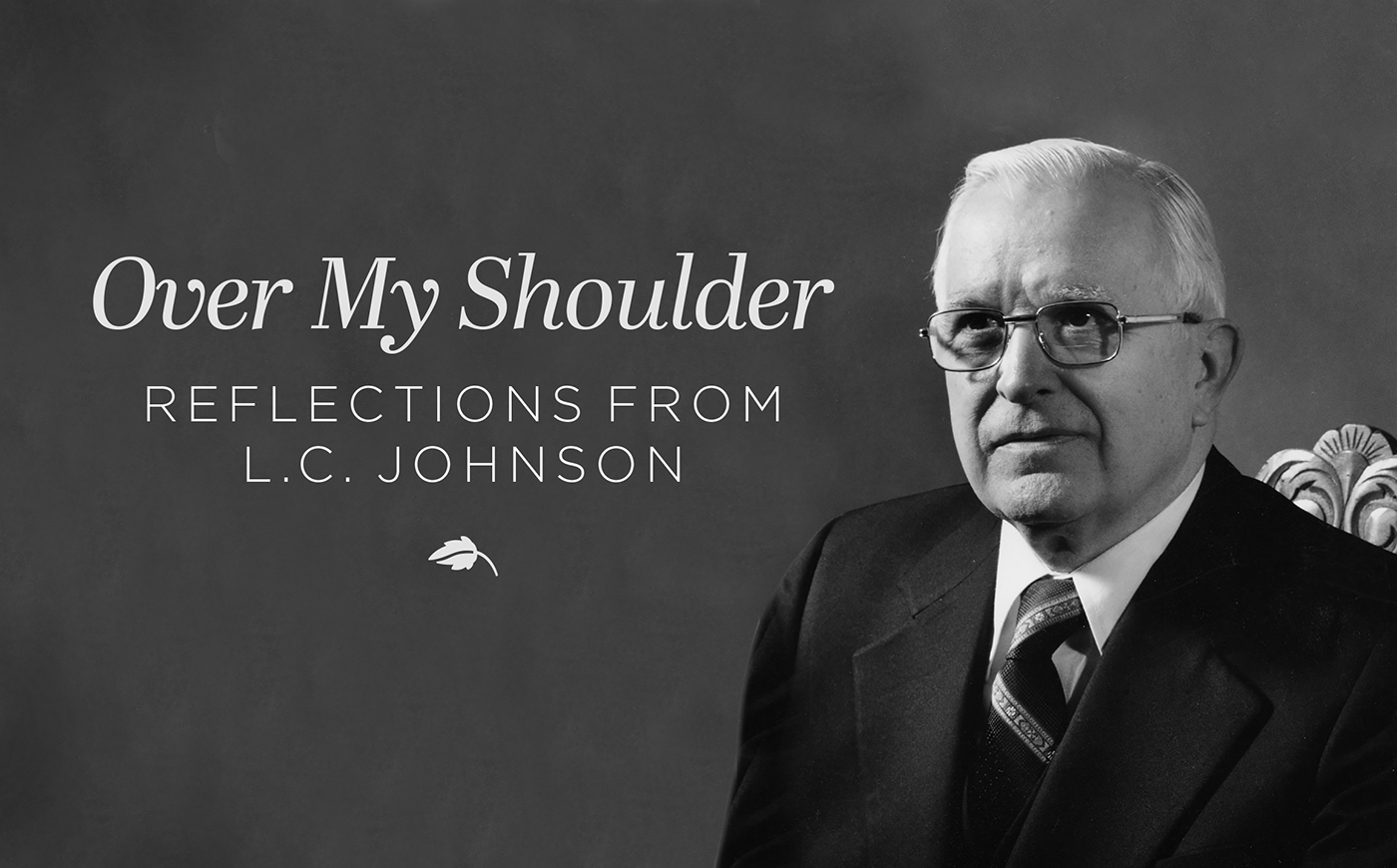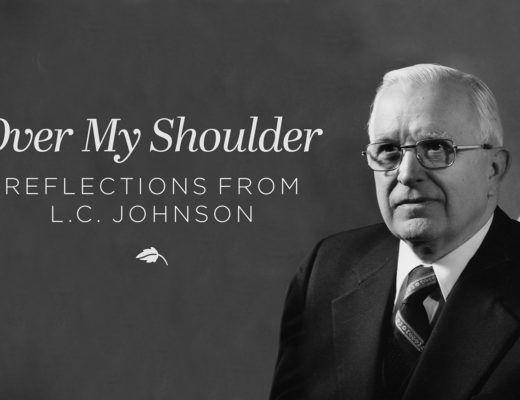Part 4: Laying a Firm Foundation
Editorial Note: As the late Dr. L.C. Johnson prepared to step down from his long tenure as president of Welch College (then Free Will Baptist Bible College), Contact magazine asked him to write a five-part series of articles. In these short accounts, Johnson traced God’s hand in forming, building, and keeping the denominational college.
After two years as president, I returned to the pastorate for three years. As with any new movement where definite objectives have not been established and agreed upon, misunderstandings developed. Everyone intensely interested in the new movement was wanting to do the best for its success. We were groping our way, and some of our ideas differed.
Since I had previously committed myself to a pastoral ministry, it was easy to make the decision to return to the pastorate. During those three years, situations developed at the college that led to another change in the administration.
It was during those three years when I returned to the pastorate that I found myself unable to free myself from the conviction this work was God’s plan for my life. When I was invited back to the college as president in 1947, I accepted and have remained.
How to “Grow a Faculty”
It quickly became clear to me and to the Governing Board that the institution should adapt the Bible college route rather than the more limited Bible institute program. This meant finding balance between biblical and liberal arts studies to give students a proper world view, along with training in biblical studies to prepare them to proclaim God’s Word. This balance between liberal arts education and biblical studies has been maintained.
Finding competent, qualified teachers who both understood and shared these objectives proved to be a major problem. To keep the good will and confidence of our constituency (with all its diversities) was a balancing act only God Himself could enable us to perform.
When I use the term balancing act, I do not suggest for one moment we compromised convictions or the truths of God’s Word. The one essential to keep the confidence of our people despite our diversities, was to so honestly conduct the affairs of the school that they believed in our integrity, whether or not they agreed with our teaching or methods.
The school was growing; the denomination was growing. A close eye had to be kept on the needs of the denomination to equip the institution to respond to those needs with new programs of study and a broader educational base.
It seems absolutely necessary to me that we be aware of two things. First, we had to be certain our successes did not inflate our ambition and lead us into radical, over-extended programs too heavy for our constituency to assume. The other watchful need was not to become discouraged with the sometimes slow response of our constituency.
From the beginning, we started building a competent faculty and administration composed from our own Free Will Baptist people. This meant encouraging young students with the potential to become good teachers to qualify themselves so they could return to the institution as professors and administrators.
Naturally, this meant many years with a young, inexperienced faculty. However, these young men and women offset their lack of experience with the high degree of dedication and a willingness for hard work that has come to characterize our faculty.
When Two Years Wasn’t Enough
In 1950, Free Will Baptist Bible College became a four-year institution. In the spring of 1951, we awarded the first degree granted from a Free Will Baptist institution since the 1910 merger. Prior to formally announcing a four-year program, we had been building a base towards it. This four-year program necessitated the continuing strengthening of our faculty, library, and other physical needs. All of this not only took more money, but also took much time.
God seemed to give us patience as these developments matured. As a result, today Free Will Baptist Bible College has a sound, competent, experienced administration and faculty. Perhaps if I had to rate my pleasures, I would rate this as number one.
New programs of study have been added as denominational need demanded. I believe we have been able to keep in step with the growing needs of our churches, and the college has responded to those needs. We have avoided coming out with grandiose plans that put us far out in front of the needs and desires of our churches. As a result, we have operated cautiously and conservatively both financially and academically.
I believe a solid base has been built for whatever future demands are made upon the institution. Free Will Baptist Bible College is committed to the plenary, inerrant, inspired Word of God — without question. Its standards of conduct not only adhere to the letter of the teachings of the Word of God, but to the spirit of its teachings, as best we understand them.
No one can be certain of the changing needs that may arise within our denomination. Therefore, it is my goal for the college to be ready to respond to whatever needs may develop.
Student enrollment must always be geared to the dedication and consecration of young people within our churches who desire this type of education. Should we experience a revival among the young people in our churches, the enrollment of Free Will Baptist Bible College will grow commensurately. Should worldliness seep in and destroy the spirit of separated Christian living within our churches, the institution may not grow and may even diminish.
I believe it wrong to set goals for growth that are not tied to these basics. Should we arbitrarily set goals only for growth, such people would filter into our student body as would destroy the spirit and purpose of the institution.
There is adequate room for growth and development within the framework of Bible college education.
L.C. Johnson, president, Free Will Baptist Bible College
(Adapted from Contact magazine, April 1979, pages 30-31.)


